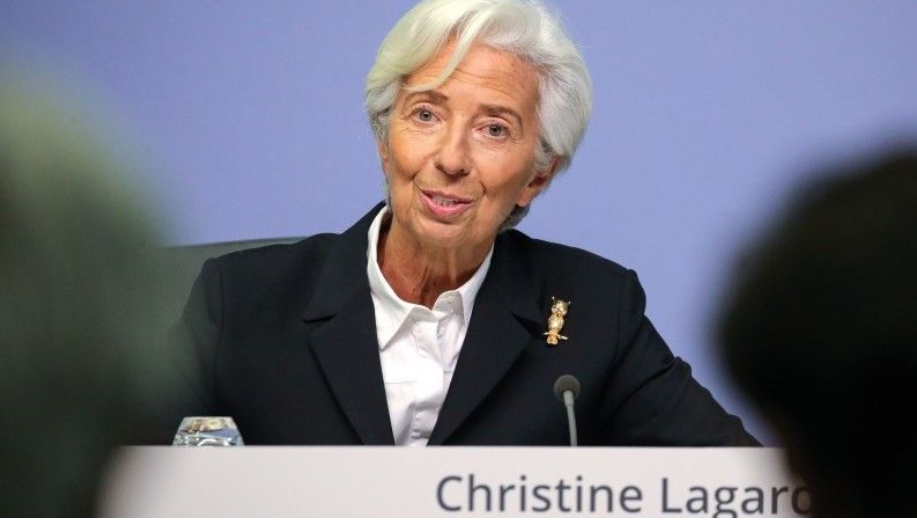ECB er slet ikke så uafhængig af regeringerne, som ECB skal være. Det fremgår af en undersøgelse, som det tyske ZEW-institut har lavet af afstemningeerne i ECB’s to ledende organer – rådet og den eksekutive ledelse. Undersøgelsen viser, at de stærkt gældsramte lande har en betydelig indflydelse på ECB. De vil fortsætte med det enorme opkøbsprogram for at holde renten nede, fordi en højere rente vil give dem store økonomiske problemer. Finanspolitiske hensyn i landene har altså en stor indflydelse på ECB’s pengepolitik, konstaterer ZEW, og det er nationale hensyn, der ligger bag de holdninger, der udmøntes i “høge” og “duer”, og det rokker dermed ved den opfattelse, mange har, at ECB er en uafhængig centralbank. ZEW bygger undersøgelsen på udtalelser fra rådsmedlemmerne. Stemmeafgivningen i rådet er ikke offentlig, så derfor svarer udtalelserne ikke nødvendigvis til afstemningerne, men ZEW vurderer, at medlemmerne i rådet i høj grad stemmer i henhold til nationale interesser, mens eksekutiv-ledelsen er langt mindre præget af nationale interesser. “Undersøgelsen viser, at finansieringen af den høje gæld i nogle lande får nogle medlemmer til at ignorere inflationsrisikoen,” siger professor Friedrich Heinemann.
Representatives of Highly Indebted Euro States in the ECB Governing Council Support Continuation of Bond Purchases
Study on Monetary Policy Conflicts in the ECB Governing Council
For the study, funded by the Brigitte Strube Stiftung, the ZEW researchers analysed public statements made by the ECB Executive Board members and all national central bank presidents in the ECB Governing Council in spring 2021.
The focus has been on statements made on the PEPP emergency programme, with the help of which the Eurosystem has greatly expanded the purchase of government bonds since March. Depending on their statements, the ECB Governing Council members have been classified as ‘doves’, ‘hawks’ or ‘neutral’.
Those who, for example, call for an exit from PEPP or warn strongly of the dangers of inflation are categorised as ‘hawks’. ‘Doves’ are those who argue for a continuation of the very expansionary monetary policy and the purchase programme for the foreseeable future. Those Council members who cannot be clearly assigned to any side are categorised as ‘neutral’.
In a second step, the study examined the relationship between this classification and the level of public debt of the countries of origin. The researchers have found a strong and significant correlation: The average debt level of the countries of origin of the ‘doves’ is 133 per cent of GDP. In the case of the ‘hawks’, on the other hand, it is only 71 per cent. The correlation is more pronounced for the national central bank presidents in the Council, while the members of the ECB Executive Board seem to be less strongly oriented towards the debt level of their home country.
Since the ECB does not provide any information on individual voting behaviour in the Council, the study cannot verify whether the statements made in public actually fully correspond to the voting behaviour behind closed doors. Thus, it is conceivable that national representatives primarily address the public of their home country with their statements and take a different stance in public than in the internal discussions of the Governing Council.
“Despite these uncertainties, our results indicate that the interests of national finance ministers are represented in the ECB Governing Council when decisions on monetary policy are made there,” Professor Friedrich Heinemann, co-author of the study, sums up the results.
While the striking correlation found in the study is not proof, it is a strong indication that the so-called ‘fiscal dominance’ of monetary policy exists. This term refers to the fact that fiscal policy has a direct impact on monetary policy decisions. This is the case, for example, when the central bank keeps interest rates low and sticks to bond purchases because otherwise some euro states could run into acute financing problems.
“Our results suggest that the role of monetary policy in financing high debt levels at home could shift the attention of many ECB Governing Council members away from inflation risks,” says Heinemann.











